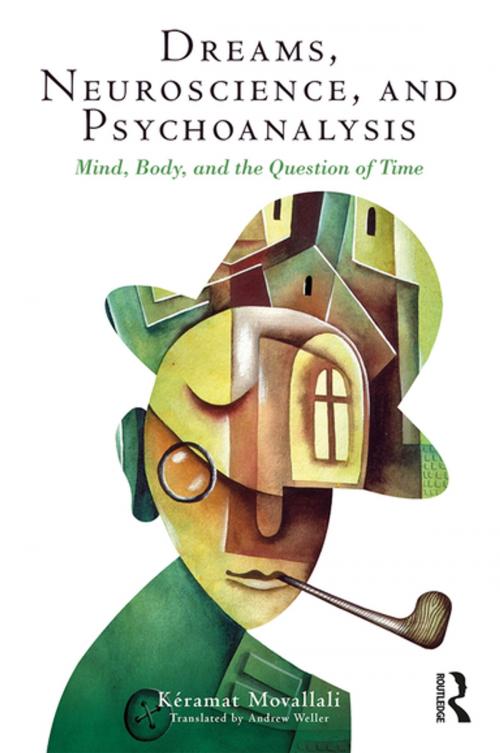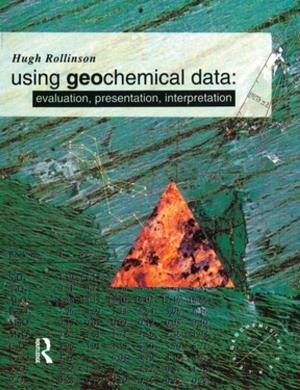Dreams, Neuroscience, and Psychoanalysis
Mind, Body, and the Question of Time
Nonfiction, Health & Well Being, Psychology, Psychoanalysis, Mental Health| Author: | Keramat Movallali | ISBN: | 9781317512134 |
| Publisher: | Taylor and Francis | Publication: | February 3, 2017 |
| Imprint: | Routledge | Language: | English |
| Author: | Keramat Movallali |
| ISBN: | 9781317512134 |
| Publisher: | Taylor and Francis |
| Publication: | February 3, 2017 |
| Imprint: | Routledge |
| Language: | English |
Dreams, Neuroscience, and Psychoanalysis sets out to give a scientific consistency to the question of time and find out how time determines brain functioning. Neurological investigations into dreams and sleep since the mid-20th century have challenged our scientific conception of living beings. On this basis, Kéramat Movallali reviews the foundations of modern neurophysiology in the light of other trends in this field that have been neglected by the cognitive sciences, trends that seem to be increasingly confirmed by recent research.
The author begins by giving a historical view of fundamental questions such as the nature of the living being according to discoveries in ethology as well as in other research, especially that which is based on the theory of the reflex. It becomes clear in the process that these findings are consistent with the question of time as it has been considered in some major contemporary philosophies. This is then extended to the domain of dreams and sleep, as phenomena that are said to be elucidated by the question of time.
The question is then raised: can dreaming be considered as a drive? Based on the Freudian discovery of the unconscious and Lacan’s teachings, Movallali seeks to provide a better understanding of the drives in general and dreams in particular. He explores neuroscience in terms of its development as well as its discoveries in the function of dreaming as an altered mode of consciousness. The challenge of confronting psychoanalysis with neuroscience forces us to go beyond their division and opposition. Psychoanalysis cannot overlook what has now become a worldwide scientific approach. Neuroscience, just like the cognitive sciences, will be further advanced by acknowledging the desiring dimension of humanity, which is at the very heart of its being as essentially related to the question of time. It is precisely this dimension that is at the core of psychoanalytic practice.
Dreams, Neuroscience, and Psychoanalysis will appeal to psychoanalysts and psychoanalytic psychotherapists as well as neuroscientists, psychologists, ethologists, philosophers and advanced students studying across these fields.
Dreams, Neuroscience, and Psychoanalysis sets out to give a scientific consistency to the question of time and find out how time determines brain functioning. Neurological investigations into dreams and sleep since the mid-20th century have challenged our scientific conception of living beings. On this basis, Kéramat Movallali reviews the foundations of modern neurophysiology in the light of other trends in this field that have been neglected by the cognitive sciences, trends that seem to be increasingly confirmed by recent research.
The author begins by giving a historical view of fundamental questions such as the nature of the living being according to discoveries in ethology as well as in other research, especially that which is based on the theory of the reflex. It becomes clear in the process that these findings are consistent with the question of time as it has been considered in some major contemporary philosophies. This is then extended to the domain of dreams and sleep, as phenomena that are said to be elucidated by the question of time.
The question is then raised: can dreaming be considered as a drive? Based on the Freudian discovery of the unconscious and Lacan’s teachings, Movallali seeks to provide a better understanding of the drives in general and dreams in particular. He explores neuroscience in terms of its development as well as its discoveries in the function of dreaming as an altered mode of consciousness. The challenge of confronting psychoanalysis with neuroscience forces us to go beyond their division and opposition. Psychoanalysis cannot overlook what has now become a worldwide scientific approach. Neuroscience, just like the cognitive sciences, will be further advanced by acknowledging the desiring dimension of humanity, which is at the very heart of its being as essentially related to the question of time. It is precisely this dimension that is at the core of psychoanalytic practice.
Dreams, Neuroscience, and Psychoanalysis will appeal to psychoanalysts and psychoanalytic psychotherapists as well as neuroscientists, psychologists, ethologists, philosophers and advanced students studying across these fields.















